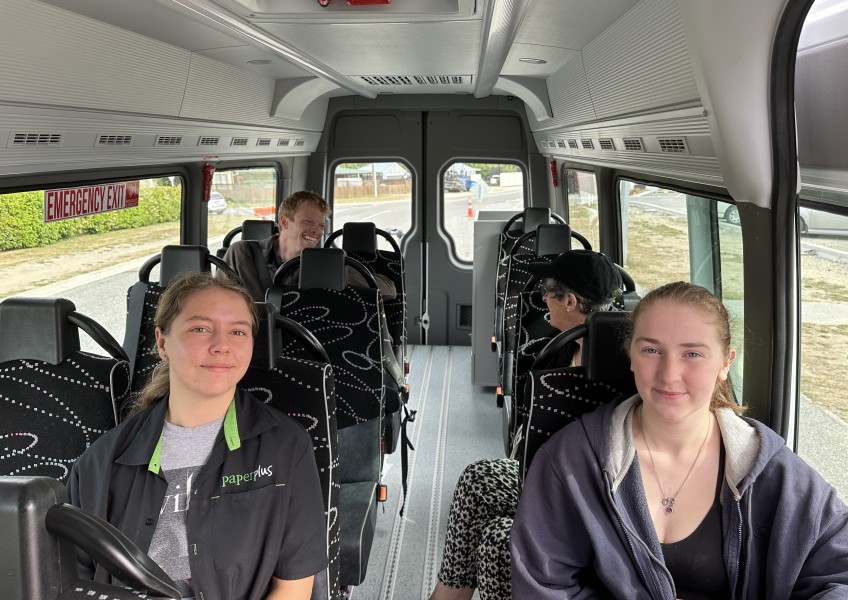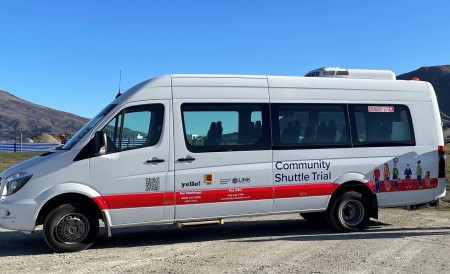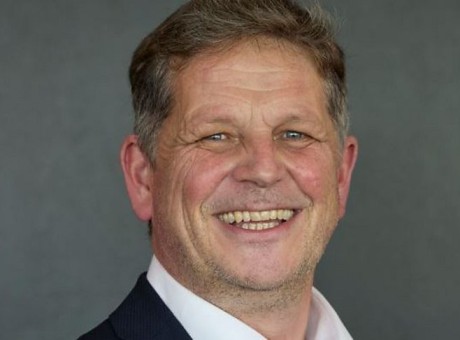Coping without a car: Lake Hāwea shuttle gives freedom to seniors, students

Crux journalist Lauren Pattemore caught the bus from Lake Hāwea to Wānaka last week. It's first-name basis only, as she chats to her fellow riders.
Jenny, who lives in Lake Hāwea, can't say how many times she’s caught the shuttle to Wānaka during the three-month public transport trial – only because she’s lost count.
As a lover of shopping and socializing, Jenny’s a frequent shuttle user, either taking solo trips for a change of scenery or with her social group, Wise Ones. The group's filled up the bus a few times.
Due to a vision impairment, she doesn’t drive anymore, previously relying on her husband to take her to town. When shopping, her preference is to browse all the aisles and pop in all the stores. The shuttle's schuedule gives her the freedom and independence to do this.
Through the bus, she’s been introduced to other Lake Hāwea residents she hadn’t met before, like high school pupil Amber and commuter Duncan.
A non-functioning car is what's put Amber on the shuttle - she's catching it about twice a week, to get to the gym or the shops. There's no gym in Lake Hāwea, she says.
Duncan, who lives in a one-car household and works in town, makes use of the shuttle when carpooling doesn’t fit. He says he’d use the shuttle every day if it was a full service – right now, it’s only three days a week.
Since Wānaka’s slightly larger, it offers more part-time work options for high schoolers, like Anataia, who’s at Paper Plus. She doesn't have her driver's license, so often hitches a ride into town with friends, but early morning requests for a lift get “annoying in holidays”, making the shuttle her first choice during summer.

The shuttle's been on the road but, for now, it's not here to stay (Image supplied).
In the past three months, Upper Clutha’s had its first public transport trial, in the form of a thirteen-seater bus travelling between Lake Hāwea and Wānaka. It’s been quite a journey for the team at Community Networks/LINK Upper Clutha, who took it upon themselves to get a service going - with twelve months of researching, sourcing funding, and putting a timetable together.
The organisation's community development coordinator Joanna Perry shares some of its successes and shortfalls.
For one, it’s well-liked by those who do use it, according to feedback received, although Ms Perry says they were hoping for more passengers.
“Ridership numbers are not what we’d hoped, though they appear to be slowly increasing over time. Ridership is spread across demographic segments (young people, older people, commuters), and the bike rack option has been popular.
“We can say it has been a huge success in terms of positive feedback from people both on and off the bus. The service has an average 4.8-star rating from users, with 'comfortable', 'safe', 'convenient' and 'friendly' the most commonly used words to describe it.”
Since it only runs three days a week, some residents say this partial service doesn’t quite meet their public transport needs.
Ms Perry says feedback of this nature isn’t uncommon for trials like theirs.
“We have heard that our experience echoes that of other transport trials – and this reminds us that behaviour changes takes time. Awareness raising is the first step, then changing minds, then changing behaviours - that eventually results in higher patronage.”
Ms Perry says a longer trial period is needed to test the effectiveness of the service, and they’re exploring funding options to extend it.
Having the trial over the summer season means they can gather a larger data set to better inform long-term public transport planning. Over the summer, the orgnisation anticipates the mix of riders will be different and they can try a slightly different model to increase ridership.

























